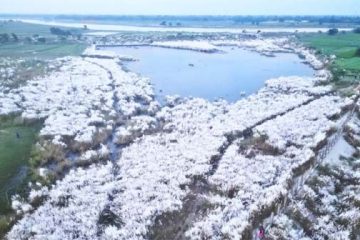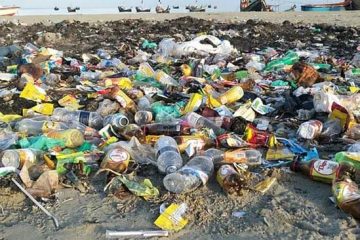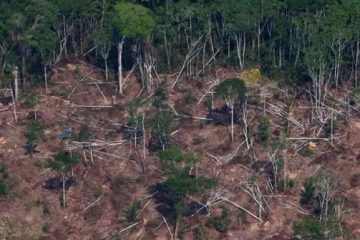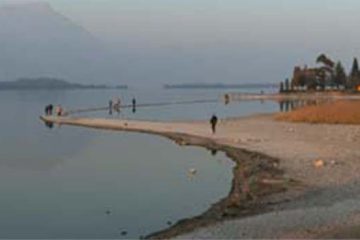Khalid Md. Bahauddin
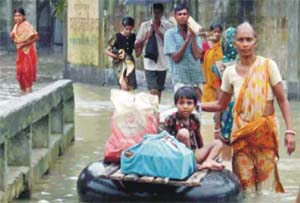 Recent investigations attribute more than 150,000 deaths per year and a global disease burden to climate change. An area that has received particular attention is the potential impact of global warming on shifts in the spatio-temporal distribution of disease vectors, and hence the frequency and transmission dynamics of vector-borne diseases. Vectors, pathogens (parasites), and hosts survive and reproduce within certain optimal climatic conditions. Changes in climate will alter the transmission of vector-borne diseases in different ways, such as changing the survival and reproduction rate of the vector and of the pathogen (parasite).
Recent investigations attribute more than 150,000 deaths per year and a global disease burden to climate change. An area that has received particular attention is the potential impact of global warming on shifts in the spatio-temporal distribution of disease vectors, and hence the frequency and transmission dynamics of vector-borne diseases. Vectors, pathogens (parasites), and hosts survive and reproduce within certain optimal climatic conditions. Changes in climate will alter the transmission of vector-borne diseases in different ways, such as changing the survival and reproduction rate of the vector and of the pathogen (parasite).
Public health officials often use the term tropical diseases to refer collectively to a list of infectious diseases that are found primarily in developing countries. These include malaria, schistosomiasis, dengue, trypanosomiasis, leprosy, cholera, and leishmaniasis, among others. Many of these diseases are spread by insect vectors, and all of them disproportionately affect the world’s poor. The World Health Organization estimates that neglected tropical diseases affect over one billion people each year and cause about 570,000 deaths annually. For example, some 200 million people are currently infected with schistosomiasis, a parasite that is transmitted through poor sanitation. More than 1.5 billion of the world’s poorest people are affected by a range of bacterial and worm based diseases including trachoma, river blindness and lymphatic filariasis. But despite the numbers they affect, and their health and social consequences, these diseases attract less than one per cent of the total health funding for the developing world.
The potential impact of global warming on the transmission of the neglected tropical diseases has received insufficient attention from researchers and different organisation. The Intergovernmental Panel on Climate Change (IPCC) has specially investigated the changing burdens of infectious diseases that may result from climate change. One IPCC background report notes that: Climate plays a dominant role in determining the distribution and abundance of insects and tick species directly, through its effects on vector and parasite development, and indirectly through its effects on host plants and animals and land-use changes. Therefore, it is anticipated that climate change will have an effect on the geographical range and seasonal activity of vector species and, potentially, disease transmission.
Global attention to infectious disease is primarily focused on HIV/AIDS, tuberculosis and malaria, the big three, as they are called. Unfortunately, this attention has not extended to a group of parasitic and microbial diseases called the neglected tropical diseases (NTDs). NTDs affect the poorest individuals. They thrive under poor sanitary conditions, where clean water and food are unavailable and where insect vectors are abundant. Women, children and those geographically isolated from health care are particularly susceptible. Those in conflict-ridden areas are also particularly susceptible, due to the disruption of any health-care infrastructure. Aside from thriving in poverty, the NTDs are also said to be poverty-promoting, as they reduce worker productivity and impair childhood development, and, consequently, the future earning abilities of those children.
Bangladesh is highly vulnerable to climate change and its high population density. Floods and cyclones are some of the major challenges that the country faces. Higher temperatures including more extreme weather events and sea level rise are already evident in Bangladesh. One estimate is that the average increase in temperature in Bangladesh would be 1.3ºC and 2.6ºC by the year 2030 and 2075 respectively with respect to the base year 1990. Global warming will increase the intensity of southwest monsoon, which will, in turn, bring about catastrophic ravages like floods and have far reaching consequences on health. During and after floods, the water borne diseases increase due to heavy contamination of the surface water. Thus climate change could cause floods, break-down of sanitation system, and more water and food-borne diseases.
Bangladesh may be one of the worst hit countries of the world due to a predicted rise in sea level. The increase in salinity in underground water will affect the availability of fresh safe water. As a result, people will be more inclined to use unsafe, contaminated surface water and will contact various water borne infectious diseases. Incidence of vector-borne diseases are likely to increase as a result climate change. This may increase the human contact with the vectors responsible for spread of diseases like malaria, filaria, leishmania and dengue. Though the surveillance system is very weak with gross under reporting, 13 districts of Bangladesh are known to be endemic for malaria, 34 for filariasis and 45 for visceral leishmaniasis (VL). Dengue has been detected in all six divisional headquarters.
The impact of climate change on neglected tropical diseases is itself neglected. There is an urgent need for researchers and organisations to investigate further the potential impact of climate changes on the transmission of neglected tropical diseases. The findings of such research are required so that populations might be able to overcome the increased risks.
The writer is a fellow (Japan), environment, member, Bangladesh Society of Environmental Scientists and Bangladesh Solar Energy Society. E-mail: khalid_mbuddin@yahoo.com

